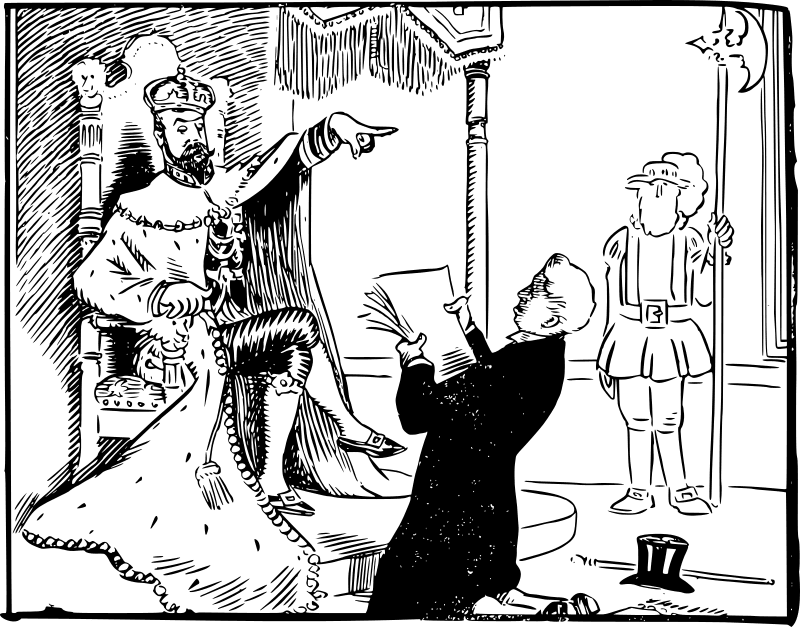The Supreme Court ruled 6-3 that presidents have an immunity from prosecution in carrying out their “official acts,” but not for their private “unofficial acts.”
Justice Sonia Sotomayor responded with a hyperbolic, deeply irresponsible dissent, including these claims:
The President of the United States is the most powerful person in the country, and possibly the world. When he uses his official powers in any way, under the majority’s reasoning, he now will be insulated from criminal prosecution. Orders the Navy’s Seal Team 6 to assassinate a political rival? Immune. Organizes a military coup to hold onto power? Immune. Takes a bribe in exchange for a pardon? Immune. Immune, immune, immune.
Let the President violate the law, let him exploit the trappings of his office for personal gain, let him use his official power for evil ends. Because if he knew that he may one day face liability for breaking the law, he might not be as bold and fearless as we would like him to be. That is the majority’s message today. Even if these nightmare scenarios never play out, and I pray they never do, the damage has been done. The relationship between the President and the people he serves has shifted irrevocably. In every use of official power, the President is now a king above the law.
She makes it sound like the court granted presidents immunity for whatever they do while in office. But, as “Chief Justice John Roberts wrote in the decision, referring to the specific case in which Donald Trump sued the government for prosecuting him for allegedly trying to overturn the election in his favor:
“The parties before us do not dispute that a former President can be subject to criminal prosecution for unofficial acts committed while in office. . . .They also agree that some of the conduct described in the indictment includes actions taken by Trump in his unofficial capacity.”
The court did not give Trump the unlimited immunity he wanted. Nor did it give the Justice Department a blank check for prosecuting him for any charge they think can stick. The court distinguished between what a president does in his official Constitutional duties and in what he does outside of those duties.
Should President Barack Obama face a murder charge for assassinating Osama bin Laden? Under this decision, no. That action was in connection with his role as commander-in-chief during a Congressionally-mandated war on terror. Could President Obama have sent Seal Team 6 to assassinate his political opponent Mitt Romney? Under this decision, contrary to what Justice Sotomayor said, no. Assassinating political opponents is not one of the president’s official duties. If he took that action, he could indeed be prosecuted for murder.
Is a president now allowed to stage a military coup to keep himself in power? Is staging coups part of a president’s official duties? No. Then that could be prosecuted.
Can presidents now take bribes in return for pardons? Issuing pardons is indeed an official act. But the Constitution explicitly forbids presidents from committing bribery: “The President, Vice President and all civil Officers of the United States, shall be removed from Office on Impeachment for, and Conviction of, Treason, Bribery, or other high Crimes and Misdemeanors” (Article II. Section 4). Whatever the mechanism for removing the president from office, it would be hard to claim that bribery is an official function of the presidency in light of this language.
Sometimes it might not be clear which presidential actions are “official” and which are “unofficial,” so courts will have to draw those lines.
But is it true, as Justice Sotomayor says, “In every use of official power, the President is now a king above the law”? The president even in his official acts is not above the Constitution. He is subject to impeachment, to the decisions of the Supreme Court, and to laws passed by Congress that constrain his administration.
The court’s decision had to do with the office of the presidency, not just Donald Trump. Apply the ruling to other presidents and its wisdom will be clear. If a different president–Republican or Democrat–found clear evidence that, as many Democrats claimed, that the Russians actually did hack into the nation’s voting machines to his advantage, would it be illegal for him to pause the ballot counting until the question had been sorted out?
As for Trump’s current legal situation, his consultation with his Attorney General and other officials of his administration about whether the election was legal would clearly be in the purview of his official duties as head of the Executive Branch sworn to uphold the law. Trying to twist the arms of state officials to get them to change their election results, as has been alleged, would not be. Actions connected to paying hush money to a porn star would clearly be an unofficial act. Retaining government records would be more complicated. He clearly had authority over them when he was president and could put them wherever he wanted, but not after his term had ended. A court would have to sort through that.
The point is, presidents are not above the law. The United States does not have a king.
Ilustration: The Rude King by j4p4n via Open Clip Art, public domain.












